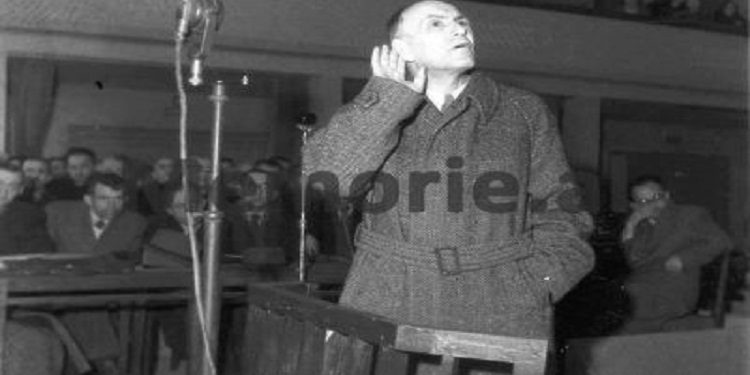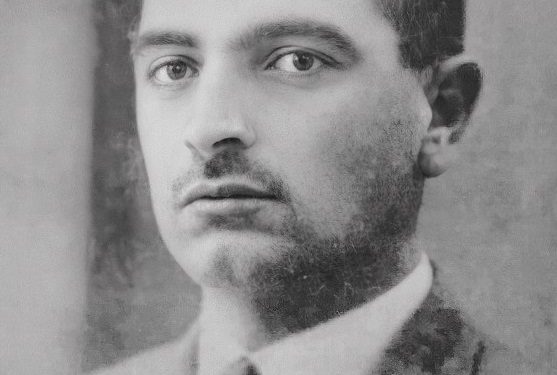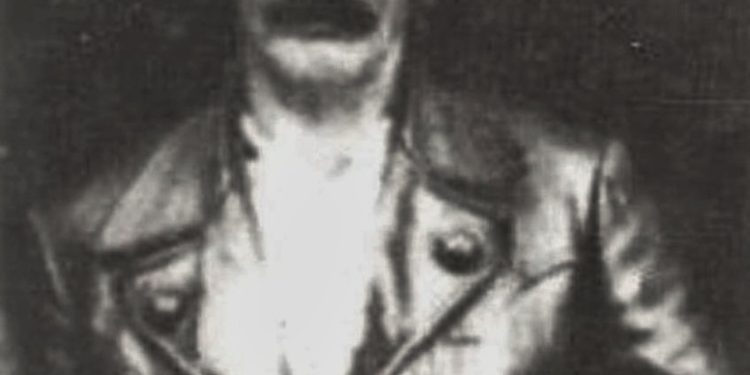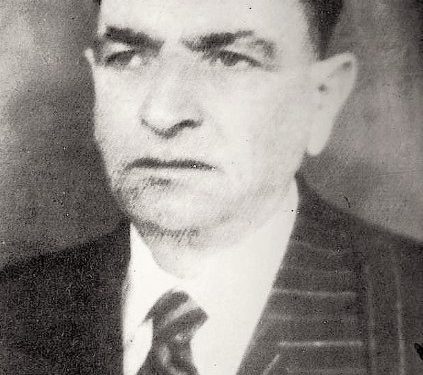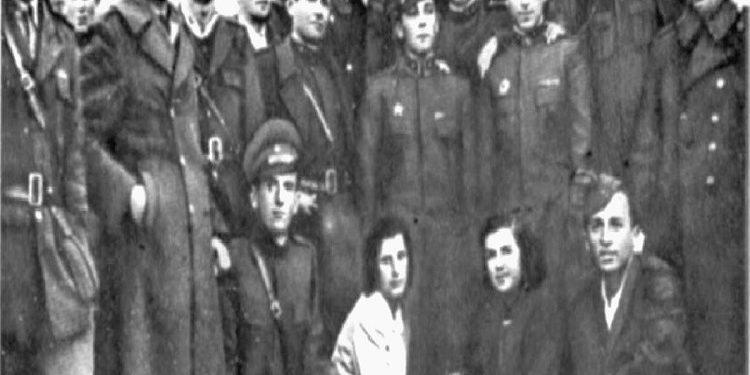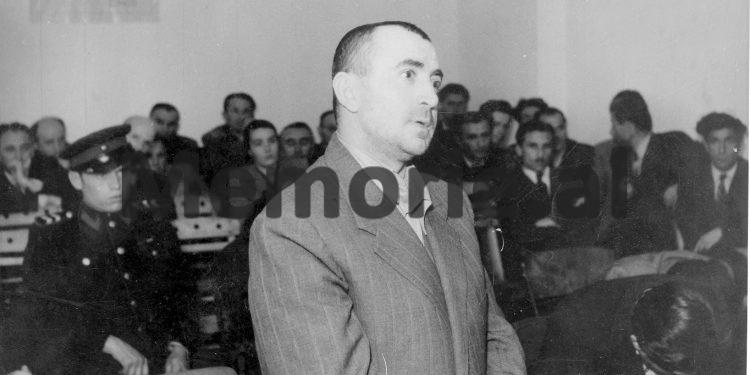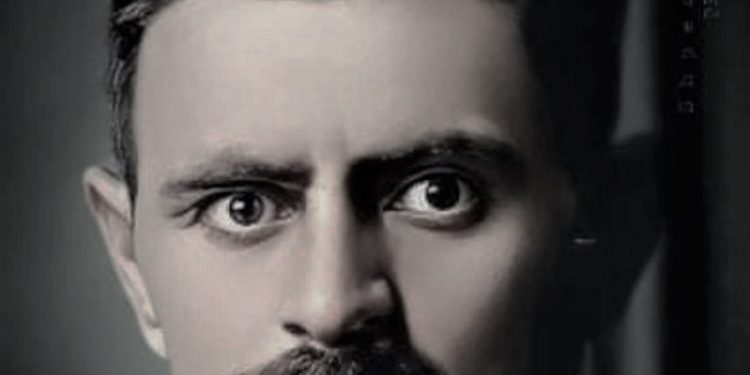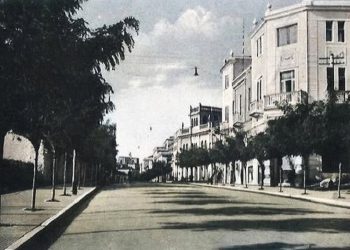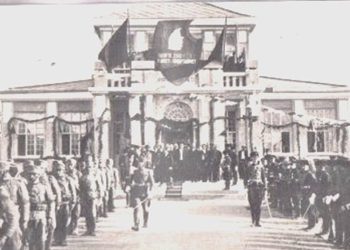The fifth part
Memorie.al publishes a study conducted by AIDSSH (Authority for the Information of Former State Security Documents), entitled; “DISAPPEARED – INSURANCE IN OWN WORDS”, 19 INSURANCE BRANCHES, 3299 LIFE, 1 HISTORY’, in which the ‘History of State Insurance’, which belongs to a time period from 1943 to 1991, is used. where 19 branches of the State Security are included, from the districts: Durres, Kolonje, Burrel, Krujë, Lushnjë, Dibër, Gramsh, Pogradec, Korçë, Tepelën, Elbasan, Lezhë, Saranda, Gjirokastër, Vlorë, Shkodër, Tropojë, Skrapar, Librazhd and Tirana.
Entry
INSURANCE IN OWN WORDS
“Those who think that communist regimes are the work of criminals only, overlook a fundamental truth: criminal regimes were not formed by criminals, but by convinced enthusiasts…”!
Milan Kundera, “The unbearable lightness of being”
Continues from last issue
Lushnje
The history of the Security for Lushnja, made in 1977, begins with an event in 1942, with the murder of a mayor and then a priest. In the history, it is understood that the guerrilla units were not only a core of the National Liberation Army, but also the embryos of the State Security weapon, since they consisted “of experienced people who operated illegally behind enemy lines and carried out actions various actions against him, such as murder of spies and traitors, etc.”!
The intensity of the terror exercised by the State Security on the population can be guessed from some figures; until 1948, there were 318 kulaks (families) in Lushnja, in addition to contingents who came from other districts, there were 239 interned and 180 deported.
While only 3 years later, in 1951, according to State Security own words, “the class war had intensified”. In addition to the local population, the Security of Lushnja also followed the movements of internees, where they estimated 419 internees, 2,777 Yugoslav immigrants (Kosovars), 37 Yugoslav citizens, and 500 anti-party elements, 1,445 political and ordinary prisoners, bringing the number to 2,678 people. That’s why everything is checked, even postal packages. Until 1960, State Security counts that 786 packages sent by different people who are abroad have arrived, 10 packages have left the country, while 130 incoming letters and 721 outgoing letters, with various hostile contents, are noted in the history.
From a detailed analysis that was made in 1969, it resulted that 2,091 contingents were being processed (following with collaborators), of these, 133 kulaks, 148 interned, 150 deported, 223 convicted for political and ordinary issues, 77 for crimes against the state, 78 fugitive families, 101 Kosovar political immigrants, 54 Yugoslav citizens, 36 repatriated.
The shooting of the priest
Considering him an agent of the fascists, the communists executed Father Pano Vërtop in 1943, which is accepted by the Security History. On August 18, the gendarmerie communique announced that “from the investigation, it turns out that at 8-9 yesterday, priest Pano Vertopi, missionary of the Catholic Clergy, was arrested accompanied by 5-6 members of the communist gang and how they took him to Gjaza, between Krutje and Poshtme villages, he was shot by them, at 2 p.m. on this day, he was found and killed, which is confirmed by a letter found on the priest by his relatives “.
Kulaks “in disguise”
The security calls the group of entrepreneurial kulaks, but the way the accusation is built is borderline unbelievable, if we consider how impossible it was to lose track, through the name change under the communist regime. “The remnants of the classes and enemies, in order to escape the vigilance of the Party and the people, have left their homeland, changed their surname and social origin, have mastered trades and technical-professional skills, presented themselves as poor, created societies with families of communists and other honest people”, says the history of Lushnja. In 1967, a group of 19 people was “discovered” and on May 7, 1967, 7 people were sentenced to be shot and 12 to 25 years of imprisonment. According to the Security, the masked kulaks had extended their activity to; Fier, Vlorë, Lushnjë, Berat, Tirana and Korçë. Although no data is given as to how they had changed their names to hide the past, the verdict is 7 dead.
In the following, the accusation is economic damage, “compromising even elements with a good political attitude”, through money and drinks. Mehmet Qazim Bregu, sentenced to rope, Xhemil Faik Margaritari, sentenced to death, Skënder Ali Mustafaraj, sentenced to death, Selai Axhem Çela, sentenced to death.
“Open razors and clothing”
Low wages and unpaid work meant that a large part of the population during communism was in the grip of survival. In the follow-ups carried out by State Security, it also documents the complaints of Iljaz Ahmeti, Pandi Kristos and Thoma Karamelos, who said that: “In Albania, the economic situation compared to other countries is very backward, that workers in Albania receive small salaries and lead a bad life, having 4-5 children in charge, the leadership of the Party and the Albanian state is responsible for this”.
As I point out that Thoma Karamelo and Vicensa Spahiu maintain constant contact with their relatives abroad, Thomai with his father and brother in the USA, and Vicenca with her sister, they ask that their family members send them basic things, but they also give orders for caution. “Thomaj orders them not to write new things, because there is danger from the Albanian Government (Security), but send me everything by the visitors who will come to Albania, you say send me open razors and not closed, this according to him must be the secret password, with which he made connections with his father. While Vicenza, of Spanish origin, has met a visitor named Elena Caracini… she begs her to get a letter to take to her sister who is in Madrid and instructs her to tell to send packages with various items, clothes and dollars, because they were left badly”!
“For Security and obtaining information on the enemy, personal observations, social and family acquaintances, conversations and interceptions on national and popular holidays, on market days, in old clubs were mainly used…”! “The hostile activity of the intelligentsia – youth, has been in different directions and at certain moments, against the party and popular power, as in literature and art, commenting on it as a lack of democracy, because artists and writers are not allowed to write what they want, but it is done according to the dictates from above…”!
Enver Hoxha for the murders of “criminals”!
“You must be very careful about this work and know how to measure your actions, because both the sectarian and opportunistic attitude in this matter will help us immeasurably. You must leave the impression that we are not inspired by unbridled consequences, but measured and fair in our actions”! “…that this is a government of Kalamaj, therefore we have one death, but let us die fed up, overthrowing them because our land has been taken away, to work against the election campaign so that the candidates of the Front are not elected, but the people are elected ours….”!
Debar
The methods that the State Security used in Dibër, to eliminate political opponents, had to do with pressure, more than with investigation. In the history of Dibra, it is accepted that for the annihilation of the gangs, the method of pursuit would be helpful, while the priority would be traps – in his terminology, – agency measures. This history clearly shows that, in addition to taking collaborators by coercion, with the help of the agency in the direction of the bases of “saboteurs and the saboteurs themselves sow panic, open trials were organized with the captured fugitives, pressure was exerted on the part of the families in the direction of fugitives for surrender”!
In this way, the groups of opponents led by Cen Elezi, Zeqir Karpuzi, Sadik Koçi, Tafe Alia, Xhetan Koleci, Shahin Capa and Edip Tërshana were disbanded, with murder or arrests. Killing as a goal and pressure as a means was the result of the work of the Security, where “the vast majority of the cadres who worked…were with primary education or self-taught”. In order to exceed this level of education, cadres were recommended every month, neither more nor less, than the history of the Bolshevik party, which for the communist government, turns out to be equally valid with secondary school and high school together.
Cen Elez’s group
“According to the order given, even if the bandits asked to surrender, it would not be accepted from our side, but all had to be killed and the corpses brought to Peshkopi. This was done in order to create as much panic and uncertainty as possible.”
“Allegedly in an attempt to escape, they were killed”
So that no opposing group could escape the State Security, Dibra was reorganized into 14 units with 350 soldiers, giving them clear tasks. The measures taken yielded results, but the Security was still not satisfied, so a new plan was drawn up that provided for arrests, not of citizens who had committed crimes, not even in the communist concept, but arrests simply to select some collaborators. “In order to carry out the task of organizing the agent network, it was considered reasonable that some arrests should be made and from these arrested, suitable elements should be selected, to put them at the service of our bodies”. But since “there was no material basis”, it was proposed to the Party Committee to draw up a list of people who became an obstacle to the realization of the work. The compiled list had 96 names.
The other proposal was that in response to the escapees, 14 of them would be executed. At this point, State Security had two versions, the first was to take them to court and shoot them. The second, to be arrested “and allegedly in an attempt to escape, to be killed”. When the history was written, years after this event, Koçi Xoxe was declared an enemy, so this method in the Security History is mentioned as the method of the traitor Koçi Xoxe. In conclusion, the Security dispersed the operatives in the field, giving them the names of the 14 people who had to be killed. The letter with their names had the letter “P” on the side, shooting. It all happened in one night.
Constraint as a method
In order to introduce their collaborators into the ranks of anti-communist groups, the State Security bodies admit that they “used a lot of coercion, rather than persuasion and carried out various combinations, to camouflage their actions as much as possible”. In order to capture the gang of Fiqiri Dines, “Pelikan” from Maqellara was arrested. While he is being held in prison, State Security uses coercion. “A combination is made, calling his wife to a meeting. During the meeting, according to the briefing that was made before, the associate tells his wife that my life is in danger and the chance to save me is in your hands only, helping the members of the Security. In this way, his wife, A.N., was put at the service of our bodies, who handed us over her brother “Runa”, who gradually, separately, ambushed other members of the gang”.
“Father’s arrest as a guarantee”
Today’s concept of justice is completely non-existent in the histories of State Security, and while fear is evident, violence can only be imagined. In order to reach the anti-communist group of Dan Kaloshi, Sigurimi arrests and sentences to death, a resident of Sohodol. After the sentence, he is called and told that if he surrenders the group of Kaloshi, his life would be spared. “Derveni” accepts, but in order to have more guarantees for his actions, his father, O.Z., is arrested. The scenario is built with a shooting of “Derven”, as camouflage, he would be easily wounded, to be given the opportunity to escape.
Bread and lead
The opposing group of Hysen Salk, an Italian-educated officer, the State Security, links it to American intelligence. An airplane noise on October 16, 1951, leads to Selishta after midnight the Security, which surrounds the area. “During the search, 6 parachutes were found hidden in a cave, 4 of which were made of silk. This indicated that there must be four saboteurs, a synthetic tent that could fit four people freely, a complete radio transmitter was found, a lot of food, especially pastries, a special furnace, to cook…!
The group realized that they were being followed and split in two directions to escape the encirclement…! “At 7:30, capobanda Hysen Salku fell in the attempt and was killed…! The saboteur who was with Hysen stayed hidden in the forest for three days. On the third night, he asked for bread at the house of the villager D. J., who gave him bread and immediately notified the police post at the Topojan bridge…! The saboteur was shot by Sergeant Vasfi Morava and was killed. It was proven that this was from Gilani of Kosovo”.
GIROKASTRA
Party membership as a reward
Whoever becomes an associate of State Security, “wins” a place in the party. This was the tempting offer that the State Security used in Gjirokastër as a way to encourage as many citizens as possible to persecute and denounce other citizens, immediately after the war. The selection criterion among the many would be depending on the good work they did, the collaborators were “rewarded”, by joining the party.
Brother-in-law’s murder
Educated and graduated in Istanbul, Bahri Omari would be at the head of “The Sun” alongside Noli, he would be a deputy and minister of foreign affairs, he would also help with education and housing for the iron leader of Albania, but not the fact that he was the father of his grandchildren, did not save Omar from the oppressive system of his brother-in-law Enver Hoxha.
Since during the war their paths had separated and Omari had been with Balli, after the war he found his name on the list of “500 criminals”, and very soon, part of the Special Court. In the History of Gjirokastër Security, it is mentioned among other names, with his fate: “Of the war criminals who were sentenced to be shot are: Ismail Golemi, Idriz Jazo, Velo Roshi, Bahri Omari, Halil Sako Gjoni and Hamdi Sako Gjoni, Hysen Izet Bocaj, Kadri Haredin Peçi, Mazar Xhemo Rusho, Halil Rrapo Vraho, Shefqet Ali Mustafaraj, etc”!
Not even the letter that his wife, Fahrija, sent to his brother, Enver Hoxha, saved Bahri Omar. He was shot at Priest’s Hill and before the guns were fired, he is remembered for his last words; “Forehead from the rifles! Traitors are killed behind their backs. We are not traitors. History will be the impartial judge”.
All the blame Koçi Xoxes
After the breakdown of relations with Yugoslavia and the traitor declaration of Koçi Xoxes, serious events and countless murders, are billed only to him. State Security, the same one that had implemented Xoxe’s orders, claims in the History, that the distortions in the work of the organs were confirmed, as a result of the activity of the “Titist Clique of Belgrade, against Albania, through the treacherous group headed by Koçi Xoxe”. The same Security that had carried out his orders, accuses Xoxes’ activity of aiming to introduce police forms and methods into the Security bodies, the same as those of the Yugoslav Security. “Police forms and methods were introduced into the State Security bodies by OZNA Yugoslavia, gradually, through Koxi Xoxes and the council. In these Trotskyist methods, wood predominated. The investigation did not make sense without using the wood…they led the employees into disinformation…to other elements fabricated by the defendant, under the dictates of torture”.
Against Koci Xoxes, Sigurimi uses his own words: “Security personnel, you must bear in mind that the enemy is covered under the name of a Party member, be vigilant, check everything, anyone and everywhere…”! If the sentence is re-read in today’s context, its message is true; the enemy was wearing the garb of the party. And although the infamous methods only apply to Koçi Xoxes, it remains unclear why they continue even after his downfall.
Shootings are success
For the State Security, the more opponents of the regime were caught and destroyed, the greater the success. On page 50 of the history of Gjirokastër, it is noted that; “As a result of the good work of the Security, 91 people were convicted as war criminals in the district of Gjirokastra, of which 17 were shot and 24 were sentenced to prison.” Referring to the materials extracted from the hit register, which was in the general section from 1944-197, it appears that in 1947, 55 people were hit, of which 47 as agents, a part for agitation and propaganda and a tendency to escape, whereas in 1948, 39 people were hit.
“In the period 1944-1948, the Security bodies in the district of Gjirokastra have hit 343 elements as war criminals, agents in the service of foreign intelligence, for agitation and propaganda and escape tendencies”. In its first Congress, the Albanian Communist Party emphasized: “The Party should work to strengthen the State Security Weapon, because it is the beloved weapon of power, which is directed by the Party.”
“…the State Security bodies (under the direction of Koçi Xoxes) had turned into all-powerful bodies, which were not subject to any control in their arbitrary and harmful activity, these groups were being cut off from the people”! “At this time (of Koçi Xoxes) the agent network built by these bodies did not respond to the fierce current war, which internal and external enemies were waging against our district”! Memorie.al
The next issue follows




